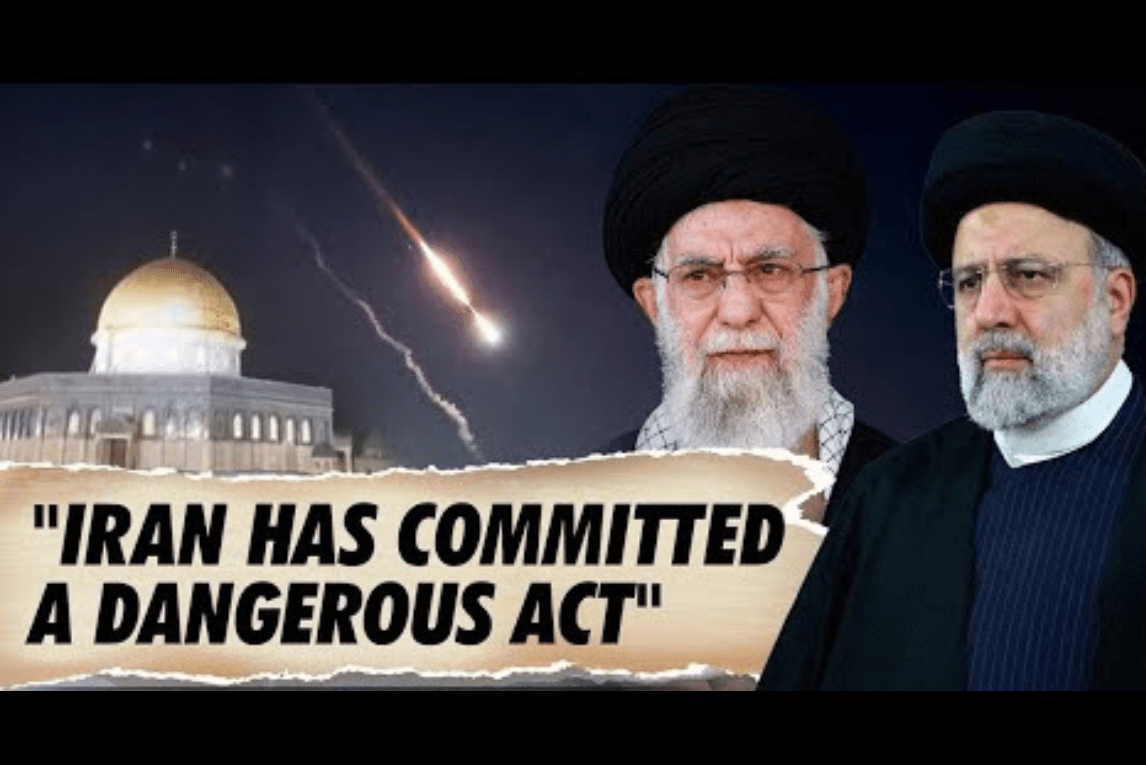According to recent reports, the Israel-Palestine conflict has significantly intensified after Iran allegedly launched missile attacks against Israel, indicating a significant change in the situation. To fully comprehend the extent and consequences of this heightened crisis, it is essential to examine all pertinent elements, including the recent attack on the Iranian embassy in Iraq and the subsequent retaliation by Iranian forces against Israel.
An Overview of the 1948 Israel-Palestine Conflict
During the late 1800s and early 1900s, the Middle East saw the rise of Arab nationalism and Zionism, leading to the beginning of conflicts between Israel and Palestine. These conflicts stemmed from conflicting national aspirations between the Palestinian and Jewish communities over the region commonly referred to as Palestine throughout history.
Following the end of World War I, Palestine was placed under British control as per the League of Nations’ mandate to establish a “homeland for the Jewish people.” This led to a notable rise in Jewish migration to Palestine, causing conflict with native Arab residents who were against the idea of a Jewish state being formed on their land.
Following the creation of Israel in 1948, there was a swift increase in tension as Palestinians were forcibly evicted from their homes, resulting in a continual refugee crisis that remains unresolved in the present day. As a result, a series of confrontations, uprisings, and repeated instances of aggression erupted in the area, resulting in considerable loss of life and damage to property for all parties involved. The major concern is, are we in World War III?
Attack on the Iranian Embassy in Iraq
There has been a report of an assault on Iran’s embassy in Iraq, which has escalated the already tense relationship between Israel and Iran. According to Iran, Israel’s attack worsened the situation.
According to early accounts, the compound of the Iranian Embassy in Baghdad, the capital of Iraq, was subjected to a barrage of rocket attacks causing damage and triggering heightened security measures in the vicinity.
Despite no casualties, the attack has heightened tensions between Iran and its opponents, specifically Israel. Iran has strongly condemned the incident and has accused Israel of being behind it, although Israel has neither confirmed nor denied their involvement.
Examination and effects
The attack on the Iranian embassy in Iraq took place during a period of increased tensions between Iran and Israel, marked by alleged missile attacks and retaliatory measures. According to analysts, this attack on the embassy is part of a larger series of back-and-forth actions that could potentially spiral out of control and involve the entire region in a wider conflict.
The country of Iran has made a commitment to retaliate against the attack on its embassy, causing concerns about the potential for further escalation and involvement of neighboring countries. This attack also emphasizes the complex and diverse nature of the conflict, which involves multiple entities and their individual interests.
Iran’s Reaction to Israel
In response to the reported attacks on its embassy and the overall increase in hostilities, Iran has retaliated by launching additional missile strikes targeted specifically at Israeli positions. The Iranian defense forces have reportedly targeted Israeli military bases, strategic installations, and infrastructure, demonstrating their military strength and resolve.
The reaction from Iran indicates a significant escalation in the ongoing conflict and showcases their willingness to directly engage with Israel through the use of advanced military resources. These attacks serve multiple strategic objectives for Iran, including retaliation against perceived acts of hostility, dissuading potential future Israeli assaults, and showing support for Palestinian groups.
According to reports, Iran is believed to be responsible for a series of missile attacks targeting different areas in Israel, signaling a significant escalation. These attacks, reportedly carried out by militia groups supported by Iran, have raised concerns about the growing conflict and the possible involvement of neighboring nations.
Indicators of the assaults
According to defense officials from Israel, Iran targeted missile strikes toward various important locations, including military bases, strategic infrastructure, and civilian areas. These attacks, which originated from Syrian territories controlled by Iranian-supported militias and possibly other regions, demonstrate a significant escalation of Iran’s involvement in the conflict.
The Israeli military has swiftly responded to the assaults by conducting airstrikes on suspected positions belonging to Iran and militia groups in Syria and other regions. The Israeli authorities have also promised to protect their citizens and land from any potential threats, demonstrating a firm stance against Iran’s alleged acts of aggression.
Objectives and Goals of Iran
Amidst escalating tensions between Tehran and Israel over its nuclear program, regional power, and backing of proxy groups in the Middle East, there have been reports of Iran being responsible for assaults. As a vocal supporter of Palestinian factions, Iran has consistently condemned Israel’s treatment of them and has urged for an end to the Israeli occupation of Palestinian territories.
According to analysts, Iran’s alleged assault on Israel can be a strategic retaliation to the Israeli airstrikes aimed at Iranian and militia bases in Syria. This event also serves to demonstrate Iran’s capabilities and resolve in the face of perceived aggression from Israel or its allies.
Impact of Geopolitics
The involvement of Iran in the Israel-Palestine conflict has significant consequences for the neighboring regions. As a major power in the region, Iran has continuously supported Palestinian groups and has frequently denounced Israeli actions towards Palestinians.
The recent acts of aggression have escalated and could potentially involve other neighboring countries such as Saudi Arabia, Turkey, and the United Arab Emirates. These countries are crucial in maintaining stability in the Middle East and may face pressure to either take sides or intervene in order to prevent further escalation of the conflict.
The international community’s response
The escalating tensions between Israel and Iran have raised concerns among the global community, leading to calls for an immediate cessation of hostilities. In response, the United Nations Security Council held an emergency meeting to discuss the issue. However, finding common ground on a solution has proven challenging due to the differing viewpoints and agendas of the participating countries.
Leaders from around the world have urged all involved parties to exercise restraint and engage in productive dialogues in order to find a peaceful resolution to their differences. The United States, European Union, and other influential nations are trying to involve actively in diplomatic efforts to de-escalate tensions and prevent a large-scale regional conflict.
Crisis of Humanitarian Nature
As the level of violence continues to rise, there is a rising concern about the state of humanitarian conditions in Gaza and other Palestinian regions. The impact of the conflict is particularly severe on non-combatants, who are suffering from both casualties and significant damage.
The humanitarian organizations requested the delivery of aid and medical assistance to those affected by the conflict with the condition of unrestricted access. It is crucial for the global community to prioritize the protection of civilians and ensure that humanitarian corridors remain open for the continuous delivery of necessary relief supplies.
Summary
The alleged attacks launched by Iran on Israel, in addition to the attack on the Iranian embassy in Iraq and the resulting retaliatory actions, have brought a dangerous and unprecedented element to the conflict between Israel and Palestine. The escalating conflicts, which involve multiple parties and complex motives, create further difficulties in achieving a peaceful resolution.
It is crucial to address the current situation between Israel and Iran in a timely manner by promoting peace, improving communication, and preventing any further acts of aggression. The international community should prioritize diplomatic solutions and engage all involved parties to achieve a comprehensive and inclusive resolution that addresses the root causes of the conflict and ensures the safety and well-being of all individuals in the region.






